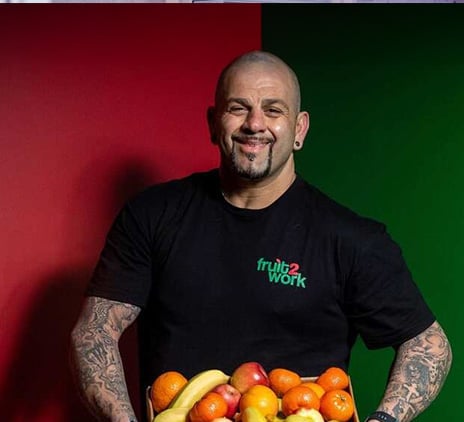- Market services
- Indigenous advisory
-
Compliance audits & reviews
Our audit team undertakes the complete range of audits required of Australian accounting laws to help you to help you meet obligations or fulfil best practice procedures.
-
Audit quality
We are fiercely dedicated to quality, use proven and globally tested audit methodologies, and invest in technology and innovation.
-
Financial reporting advisory
Our financial reporting advisory team helps you understand changes in accounting standards, develop strategies and communicate with your stakeholders.
-
Audit advisory
Grant Thornton’s audit advisory team works alongside our clients, providing a full range of reviews and audits required of your business.

-
Corporate tax & advisory
We provide comprehensive corporate tax and advisory service across the full spectrum of the corporate tax process.
-
Private business tax & advisory
We work with private businesses and their leaders on all their business tax and advisory needs.
-
Tax compliance
We work alongside clients to manage all tax compliance needs and identify potential compliance or tax risk issues.
-
Employment tax
We help clients understand and address their employment tax obligations to ensure compliance and optimal tax positioning for their business and employees.
-
International tax
We understand what it means to manage tax issues across multiple jurisdictions, and create effective strategies to address complex challenges.
-
GST, stamp duty & indirect tax
Our deep technical knowledge and practical experience means we can help you manage and minimise the impact of GST and indirect tax, like stamp duty.
-
Tax law
Our team – which includes tax lawyers – helps you understand and implement regulatory requirements for your business.
-
Innovation Incentives
Our national team has extensive experience navigating all aspects of the government grants and research and development tax incentives.
-
Transfer pricing
Transfer pricing is one of the most challenging tax issues. We help clients with all their transfer pricing requirements.
-
Tax digital consulting
We analyse high-volume and unstructured data from multiple sources from our clients to give them actionable insights for complex business problems.
-
Corporate simplification
We provide corporate simplification and managed wind-down advice to help streamline and further improve your business.
-
Superannuation and SMSF
Increasingly, Australians are seeing the benefits, advantages and flexibility of taking control of their own superannuation and retirement planning.

-
Payroll consulting & Award compliance
Many organisations are grappling with a myriad of employee agreements and obligations, resulting in a wide variety of payments to their people.
-
Cyber resilience
The spectrum of cyber risks and threats is now so significant that simply addressing cybersecurity on its own isn’t enough.
-
Internal audit
We provide independent oversight and review of your organisation's control environments to manage key risks, inform good decision-making and improve performance.
-
Financial crime
Our team helps clients navigate and meet their obligations to mitigate crime as well as develop and implement their risk management strategies.
-
Consumer Data Right
Consumer Data Right (CDR) aims to provide Australians with more control over how their data is used and disclosed.
-
Risk management
We enable our clients to achieve their strategic objectives, fulfil their purpose and live their values supported by effective and appropriate risk management.
-
Controls assurance
In Australia, as with other developed economies, regulatory and market expectations regarding corporate transparency continue to increase.
-
Governance
Through fit for purpose governance we enable our clients to make the appropriate decisions on a timely basis.
-
Regulatory compliance
We enable our clients to navigate and meet their regulatory and compliance obligations.

-
Forensic accounting and dispute advisory
Our team advises at all stages of a litigation dispute, taking an independent view while gathering and reviewing evidence and contributing to expert reports.
-
Investigations
Our licensed forensic investigators with domestic and international experience deliver high quality results in the jurisdictions in which you operate.
-
Asset tracing investigations
Our team of specialist forensic accountants and investigators have extensive experience in tracing assets and the flow of funds.

-
Mergers and acquisitions
Our mergers and acquisitions specialists guide you through the whole process to get the deal done and lay the groundwork for long-term success.
-
Acquisition search & strategy
We help clients identify, finance, perform due diligence and execute acquisitions to maximise the growth opportunities of your business.
-
Selling a business
Our M&A team works with clients to achieve a full or partial sale of their business, to ensure achievement of strategic ambitions and optimal outcomes for stakeholders.
-
Operational deal services
Our operational deal services team helps to ensure the greatest possible outcome and value is gained through post merger integration or post acquisition integration.
-
Transaction advisory
Our transaction advisory services support our clients to make informed investment decisions through robust financial due diligence.
-
Business valuations
We use our expertise and unique and in-depth methodology to undertake business valuations to help clients meet strategic goals.
-
Tax in mergers & acquisition
We provide expert advice for all M&A taxation aspects to ensure you meet all obligations and are optimally positioned.

-
Corporate finance
We provide effective and strategic corporate finance services across all stages of investments and transactions so clients can better manage costs and maximise returns.
-
Debt advisory
We work closely with clients and lenders to provide holistic debt advisory services so you can raise or manage existing debt to meet your strategic goals.
-
Working capital optimisation
Our proven methodology identifies opportunities to improve your processes and optimise working capital, and we work with to implement changes and monitor their effectiveness.
-
Capital markets
Our team has significant experience in capital markets and helps across every phase of the IPO process.
-
Debt and project finance raising
Backed by our experience accessing full range of available funding types, we work with clients to develop and implement capital raising strategies.
-
Private equity
We provide advice in accessing private equity capital.
-
Financial modelling
Our financial modelling advisory team provides strategic, economic, financial and valuation advice for project types and sizes.
-
Payments advisory
We provide merchants-focused payments advice on all aspects of payment processes and technologies.

-
Voluntary administration & DOCA
We help businesses considering or in voluntary administration to achieve best possible outcomes.
-
Corporate insolvency & liquidation
We help clients facing corporate insolvency to undertake the liquidation process to achieve a fair and orderly company wind up.
-
Complex and international insolvency
As corporate finance specialists, Grant Thornton can help you with raising equity, listings, corporate structuring and compliance.
-
Safe Harbour advisory
Our Safe Harbour Advisory helps directors address requirements for Safe Harbour protection and business turnaround.
-
Bankruptcy and personal insolvency
We help clients make informed choices around bankruptcy and personal insolvency to ensure the best personal and stakeholder outcome.
-
Creditor advisory services
Our credit advisory services team works provides clients with credit management assistance and credit advice to recapture otherwise lost value.
-
Small business restructuring process
We provide expert advice and guidance for businesses that may need to enter or are currently in small business restructuring process.
-
Asset tracing investigations
Our team of specialist forensic accountants and investigators have extensive experience in tracing assets and the flow of funds.

-
Independent business reviews
Does your company need a health check? Grant Thornton’s expert team can help you get to the heart of your issues to drive sustainable growth.
-
Commercial performance
We help clients improve commercial performance, profitability and address challenges after internal or external triggers require a major business model shift.
-
Safe Harbour advisory
Our Safe Harbour advisory helps directors address requirements for Safe Harbour protection and business turnaround.
-
Corporate simplification
We provide corporate simplification and managed wind-down advice to help streamline and further improve your business.
-
Director advisory services
We provide strategic director advisory services in times of business distress to help directors navigate issues and protect their company and themselves from liability.
-
Debt advisory
We work closely with clients and lenders to provide holistic debt advisory services so you can raise or manage existing debt to meet your strategic goals.

-
Business planning & strategy
Our clients can access business planning and strategy advice through our value add business strategy sessions.
-
Private business company secretarial services
We provide company secretarial services and expert advice for private businesses on all company secretarial matters.
-
Outsourced accounting services
We act as a third-party partner to international businesses looking to invest in Australia on your day-to-day finance and accounting needs.
-
Superannuation and SMSF
We provide SMSF advisory services across all aspects of superannuation and associated tax laws to help you protect and grow your wealth.
-
Management reporting
We help you build comprehensive management reporting so that you have key insights as your business grows and changes.
-
Financial reporting
We help with all financial reporting needs, including set up, scaling up, spotting issues and improving efficiency.
-
Forecasting & budgeting
We help you build and maintain a business forecasting and budgeting model for ongoing insights about your business.
-
ATO audit support
Our team of experts provide ATO audit support across the whole process to ensure ATO requirements are met.
-
Family business consulting
Our family business consulting team works with family businesses on running their businesses for continued future success.
-
Private business taxation and structuring
We help private business leaders efficiently structure their organisation for optimal operation and tax compliance.
-
Outsourced CFO services
Our outsourced CFO services provide a full suite of CFO, tax and finance services and advice to help clients manage risk, optimise operations and grow.
-
ESG & sustainability reporting
There is a growing demand for organisations to provide transparency on their commitment to sustainability and disclosure of the nonfinancial impacts of their business activities. Commonly, the responsibility for sustainability and ESG reporting is landing with CFOs and finance teams, requiring a reassessment of a range of reporting processes and controls.
-
ESG & sustainability advisory
With the ESG and sustainability landscape continuing to evolve, we are focussed on helping your business to understand what ESG and sustainability represents and the opportunities and challenges it can provide.
-
ESG, sustainability and climate reporting assurance
As the demand for organisations to prepare information in relation to ESG & sustainability continues to increase, through changes in regulatory requirements or stakeholder expectations, there is a growing need for assurance over the information prepared.

-
Management consulting
Our management consulting services team helps you to plan and implement the right strategy to deliver sustainable growth.
-
Financial consulting
We provide financial consulting services to keep your business running so you focus on your clients and reaching strategic goals.

-
China practice
The investment opportunities between Australia and China are well established yet, in recent years, have also diversified.
-
Japan practice
The trading partnership between Japan and Australia is long-standing and increasingly important to both countries’ economies.
-
India practice
It’s an exciting time for Indian and Australian businesses looking to each jurisdiction as part of their growth ambitions.
-
Singapore practice
Our Singapore Practice works alongside Singaporean companies to achieve growth through investment and market expansion into Australia.

-
 Insight Australian wine export strategies post-China tariff removalFollowing the recent removal of tariffs on Australian wine by China, the industry is keen to rebuild relations and explore the right export markets. This presents Australian wine producers with a chance to reassess their position in the global market.
Insight Australian wine export strategies post-China tariff removalFollowing the recent removal of tariffs on Australian wine by China, the industry is keen to rebuild relations and explore the right export markets. This presents Australian wine producers with a chance to reassess their position in the global market. -
 Insight Identify your opportunities in the complex landscape of fuel tax creditsThe landscape of fuel tax credits (FTC) is constantly evolving due to ongoing economic and technological developments. This dynamic environment presents both challenges and opportunities for businesses with significant fuel consumption.
Insight Identify your opportunities in the complex landscape of fuel tax creditsThe landscape of fuel tax credits (FTC) is constantly evolving due to ongoing economic and technological developments. This dynamic environment presents both challenges and opportunities for businesses with significant fuel consumption. -
 Client Alert March 2024 Update: NSW Grants for Net Zero Manufacturing and Physical SciencesSome major NSW grant programs have been announced, supporting projects in clean technology innovation, low carbon product manufacturing, renewable manufacturing and physical sciences.
Client Alert March 2024 Update: NSW Grants for Net Zero Manufacturing and Physical SciencesSome major NSW grant programs have been announced, supporting projects in clean technology innovation, low carbon product manufacturing, renewable manufacturing and physical sciences. -
 Insight Navigating a complex Agribusiness, Food and Beverage deals landscape in 2024Despite a 14% global decline in Agribusiness, Food, and Beverage M&A deals, 2024 shows promise with expected global interest rate stabilisation. Given the sector's role in global sustainability, businesses can tap into opportunities in food manufacturing and waste minimisation.
Insight Navigating a complex Agribusiness, Food and Beverage deals landscape in 2024Despite a 14% global decline in Agribusiness, Food, and Beverage M&A deals, 2024 shows promise with expected global interest rate stabilisation. Given the sector's role in global sustainability, businesses can tap into opportunities in food manufacturing and waste minimisation.
-
Renewable Energy
Transformation through energy transition

-
Business Planning and Strategy
Having an honest, broad-reaching and thought-provoking discussion with a skilled, independent advisor can be the catalyst for clarity – a direction to take your business forward and an understanding of what is key to success.

-
Flexibility & benefits
The compelling client experience we’re passionate about creating at Grant Thornton can only be achieved through our people. We’ll encourage you to influence how, when and where you work, and take control of your time.
-
Your career development
At Grant Thornton, we strive to create a culture of continuous learning and growth. Throughout every stage of your career, you’ll to be encouraged and supported to seize opportunities and reach your full potential.
-
Diversity & inclusion
To be able to reach your remarkable, we understand that you need to feel connected and respected as your authentic self – so we listen and strive for deeper understanding of what belonging means.
-
In the community
We’re passionate about making a difference in our communities. Through our sustainability and community engagement initiatives, we aim to contribute to society by creating lasting benefits that empower others to thrive.
-
Graduate opportunities
As a new graduate, we aim to provide you more than just your ‘traditional’ graduate program; instead we kick start your career as an Associate and support you to turn theory into practice.
-
Vacation program
Our vacation experience program will give you the opportunity to begin your career well before you finish your degree.
-
The application process
Applying is simple! Find out more about each stage of the recruitment process here.
-
FAQs
Got questions about applying? Explore frequently asked questions about our early careers programs.
-
Our services lines
Learn about our services at Grant Thornton
-
Current opportunities
Current opportunities
-
Remarkable people
Our team members share their remarkable career journeys and experiences of working at Grant Thornton.
-
Working at Grant Thornton
Explore our culture, benefits and ways we support you in your career.
-
Current opportunities
Positions available.
-
Contact us
Get in touch
Australia’s energy week
Last week was “energy week” – with a number of policy announcements from the Federal Government, and yesterday’s launch of the Low Emissions Statement signalling the prioritisation of hydrogen storage, low carbon manufacturing and carbon capture on our transition away from coal and towards a more renewable future.
The Government is pouring funding into stockpiling fuel, committing to invest in dispatchable energy, and expanding the remit of the Clean Energy Finance Corporation and the Australian Renewable Energy Agency. Investment is one thing, bringing national consistency to energy policy is another. However, get the structure right and investment in energy will mean investment in clean energy technologies that can support a strong economic recovery.
In our podcast, Jannaya James, a specialist in Renewable Energy at Grant Thornton, discusses the importance of funding emerging clean technologies, whether gas is the right transitional decision, and the road to hydrogen.
Available on Apple Podcasts, Spotify or within your browser
Podcast transcript
Velvet-Belle Templeman
Welcome to Grant Thornton’s Navigating the New Normal Podcast Series. My name’s Velvet-Belle Templeman and I’m here talking to Jannaya James, Partner in Financial Advisory at Grant Thornton, specialising in renewable energy. Today, we’re talking about Australia’s renewable energy policy, with energy being a key component of Australia’s economic recovery from COVID-19, what does that actually look like? Jannaya’s dialling in from regional Victoria. Working remotely has definitely helped with flexibility, but as you can tell from today’s podcast, it can mess with sound quality. Thanks so much for joining us, Jannaya.
Jannaya James
Thanks, Velvet-Belle
Velvet-Belle Templeman
Jannaya, last week was dubbed energy week. Before this and before COVID, how was investment in energy tracking in Australia?
Jannaya James
Over the last few years, energy investment has actually been really strong. That’s been off the back of higher wholesale electricity prices which have come from the retirements of coal-fired power stations and so on, but also government incentives and easier access to finance. For a while there, Australia really did become a destination of choice, for want of a better way, for global companies expanding their renewable energy portfolios. But what we’ve seen over the last 12 months to two years, there’s been a significant slowdown of that renewable energy investment.
That’s really come about as a result of the tightening of contractual pricing arrangements, but also network constraints for those renewable projects on the periphery of our network and as a result, returns to the investors falling. A lot of this has been driven by underinvestment in the infrastructure network and I guess, the tyranny of distance that characterises Australia’s energy network.
Having said that, the Government has invested over $10 billion dollars into clean energy over the last few years, key ones being things like Snowy Hydro 2.0, but also hydrogen pilots and electric vehicle charging networks.
Velvet-Belle Templeman
Is this investment from the Government a signal that there is a positive shift in energy policy on the horizon?
Jannaya James
The challenge that both the Government and Australia more broadly is facing, is the provision of affordable, reliable and secure energy in the wake of more retirements in the coal-fired power stations. This will basically risk increasing prices again. The reality is, we have an insufficient supply of reliable dispatchable energy to replace these retirements. Last year’s budget, it seemed that the Government was not really making any real commitments to a clean energy future. However, over the past 12 months there has really been a shift and that’s culminated in the announcements of last week in what was dubbed ‘Energy Week’. As part of that, the Government has basically thrown down the gauntlet to the private sector, to ask the private sector to propose a project by April next year that can replace the retirement of the Liddell Power Station and in the event that the private sector can’t come up with that, they will replace that with a gas-fired power station.
This has caused some debate, effectively replacing fossil fuel with another fossil fuel, albeit a lower emissions fossil fuel. But it’s important to understand, this solution is leading a transition to clean energy. Watching the National Press Club last week, Andrew Liveris was at absolute pains to be clear about that gas is really going to be a transitional fuel. The benefit with what the Government’s proposing here is investment in gas infrastructure can assist in that transition, with emerging technologies such as hydrogen, as that same infrastructure can be used for hydrogen.
What’s really exciting though, is the private sector’s already responded with the likes of Mike Cannon-Brookes coming out and really accepting the challenge and looking to provide a reliable secure solution. I think the other thing about the announcements of last week that has been brushed over a little bit, is the commitment for long-term funding and expanded focus for ARENA to the order of about $1.6 billion dollars. But also, the promise to expand the Clean Energy Finance Corporation’s mandate to invest in a lot of new energy technologies. This will really enable work for the private sector to support it and develop low emissions technology.
Velvet-Belle Templeman
This is really exciting. What sorts of energy companies could benefit most from this?
Jannaya James
Well, the headlines have really been about developing a hydrogen industry, but the key to the funding, as far as I’m concerned, is emerging technologies, technologies that focus on things like carbon sequestration, energy from waste, [4:33.1] in regional and remote Australia, storage solutions as well as both a manufacturing or industrial level, but also at a scalable utility level. At the moment, things like battery storage is currently cost prohibitive and the supply just isn’t sufficient to meet that demand. The real opportunity we’ve got here is basically a ‘green-led’ – for want of a better word – COVID recovery. Particularly in the areas of manufacturing, agriculture and transport sectors, where new technologies can really help make the Australian industry more competitive.
Velvet-Belle Templeman
Are these Australian companies or overseas ones like Tesla? What does international energy investment look like in Australia?
Jannaya James
Well, the opportunity here isn’t about looking overseas, but how we can actually increase clean technology investment locally. Our R&D and development capability in Australia is as good as anywhere else in the world and we really are at the forefront of being able to develop some really smart technologies. With a focus on improving the competitiveness of the heavy energy users of Australia, this really does create an opportunity for these clean tech companies to develop and commercialise technology that will really make Australia much more competitive on a global scale. Things like load management technology or behind the metre energy solutions can really increase the competitiveness of, say, our manufacturing sector, as well as having the benefit of reducing our emissions and meeting our clean energy target in the longer-term.
Velvet-Belle Templeman
Jannaya, yesterday the government released their Technology Investment Roadmap which set out short, medium and long term goals towards Australia’s new energy future. There is a particular emphasis on hydrogen, what are your thoughts on this?
Jannaya James
They low emissions statement that came out yesterday is really the first thing to come out of that Technology Investment Roadmap and I think what we are seeing here is a real prioritisation of technology with hydrogen, storage, low carbon manufacturing, carbon capture and those sorts of things being the absolute highest priorities. The Government’s even articulated some stretch goals associate with them to make them affordable and reliable technology. And in particular what was really interesting is that they have brought in that manufacturing focus, particularly around high energy use industries like aluminium and steel manufacturing and really trying to drive low emissions into those sectors to enable us to become a lot more competitive. But I think the part that I find really interesting is where most of my clients are situated and that in the emerging and enabling technologies, which really are there to support the technologies of the priority areas. And what the Government is saying here is that they are really looking to partner with the private sector, both locally and that they even mentioned, internationally to invest and support these technologies. And look that’s going to be done through the likes of ARENA and the Clean Energy Finance Corporation. But what they’ve also articulated is support for other sort of tech incubator type programs, which I think is a really, a really interesting and really positive spin on things and things like support for CSIRO innovation, early stage venture capital partnerships and they even mentioned tax incentives for early stage investors. These are the sorts of things that for my clients in particular will really support them in developing the technologies that can lead to a low emissions future.
Velvet-Belle Templeman
So, investing in renewable energy is on the horizon, but there are issues with transmission and loads, aren’t there? How do we get the right mix of sustainable and on-demand energy?
Jannaya James
Wind and solar are intermittent. They tend to only generate power when the wind blows or the sun shines, and that intermittency places immense pressure on our grid and doesn’t provide the reliability required. A really good example is that we see a lot in the mining sector in particular, where they are still heavily reliant on gas and diesel as the principle energy source, only supplemented by renewables. To continue support for wind and solar in particular, improvements do still need to be made to the network. It was pleasing to see last year that the Government introduced a $1 billion dollar grid reliability fund and that’s going to help improve our networks and have it robust enough to support the intermittency of the likes of wind and solar.
Also, this grid reliability fund isn’t just about the compromise in the transmission network, it’s also about looking at things like storage solutions, pumped hydro is a good example. Again, this is where gas has come in – I don’t believe it is a long-term solution. However, it is an adequate transition, but without the continued investment in the alternative, what we’ll see is the commitment of long-term for a clean energy future will somewhat be restricted.
Velvet-Belle Templeman
We’ve talked about the recent announcements, we’ve touched on the technology investment roadmap, what more would you hope to see from the Government in the lead-up to or in the budget to really spearhead investment in energy?
Jannaya James
The announcements they’ve made over ‘Energy Week’ as they called it, over the last week and probably over the last year, is really creating a great base. To be honest, I think most people would say the last year’s budget lacked any real clarity around clean energy going forward. What I would really like to see is a real focus on supporting our emerging clean tech industry, in terms of supporting the development and commercialisation of clean energy technologies. By doing this, I think that we can use it as a way to use energy to change our heavy use segments of our economy, things like manufacturing, mining, agriculture, transport… We’ve got a fantastic R&D capability in this country and we have the potential to be a real world-leader in clean tech, and so what I’d like to see is more grant and R&D incentives focused on the development and commercialisation of these technologies.
Velvet-Belle Templeman
Jannaya, any final thoughts – what could Australia’s energy future look like?
Jannaya James
Well, we are in a time of disruption and there is no better time to really focus on this. We have a perfect opportunity now to have a manufacturing-led recovery and that provides huge opportunities for emerging clean energy technology that will reduce cost to our manufacturing and other sectors and make these economic stimulating sectors increasingly competitive. We do need to focus on getting the mix right in the short-term as well as the long-term in order to meet the clean energy targets. As I said before, we do really have such a strong R&D capability and it’s not only to improve the competitiveness of our local industry, but we can potentially be a key exporter in clean tech.
What we’re seeing now in terms of the Government announcements over the last week and what I’m hoping to see in the budget, it’s a really great starting point and I really look forward to seeing a continued commitment to driving growth in the clean tech space going forward.
Velvet-Belle Templeman
Jannaya, thank you for your time.
Jannaya James
Thank you.




































